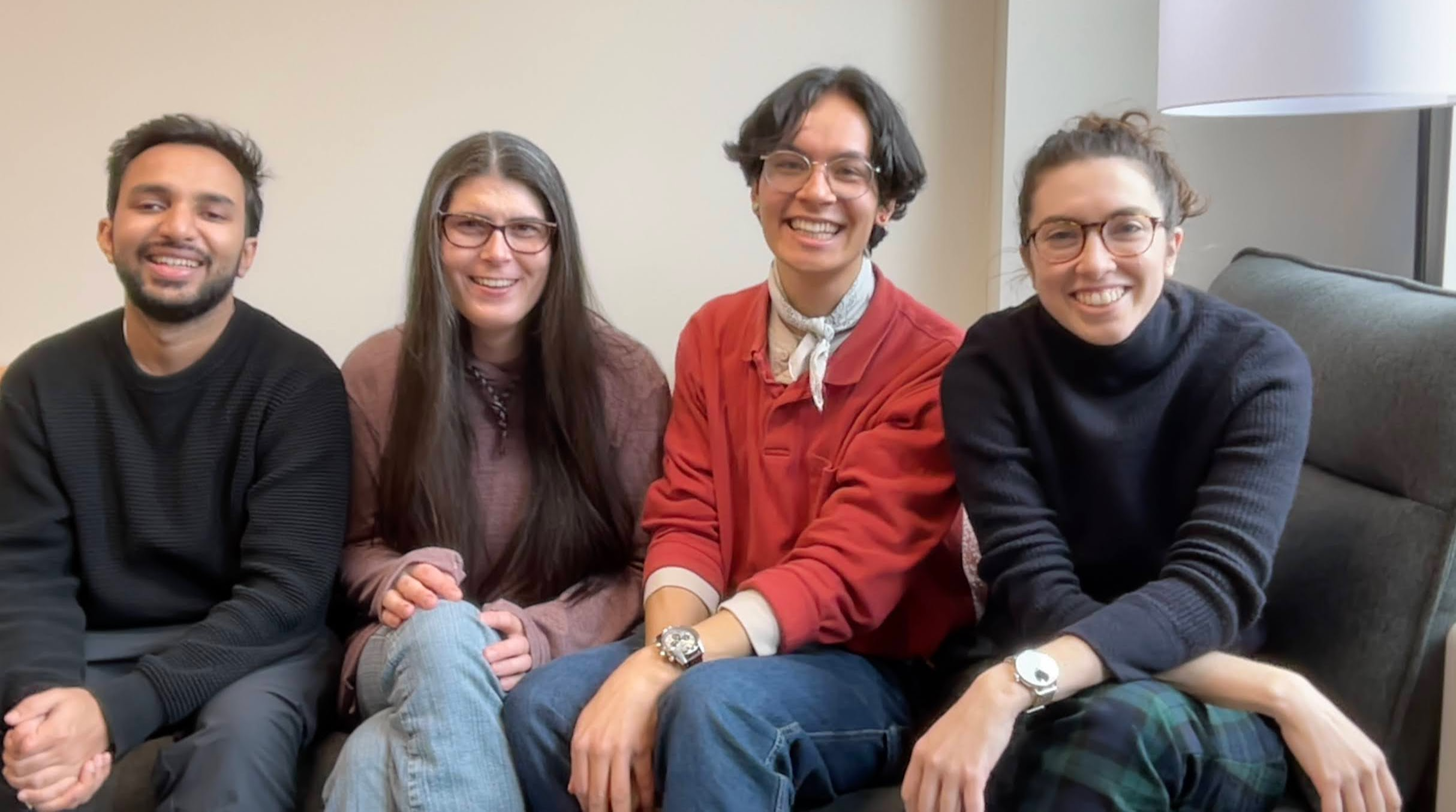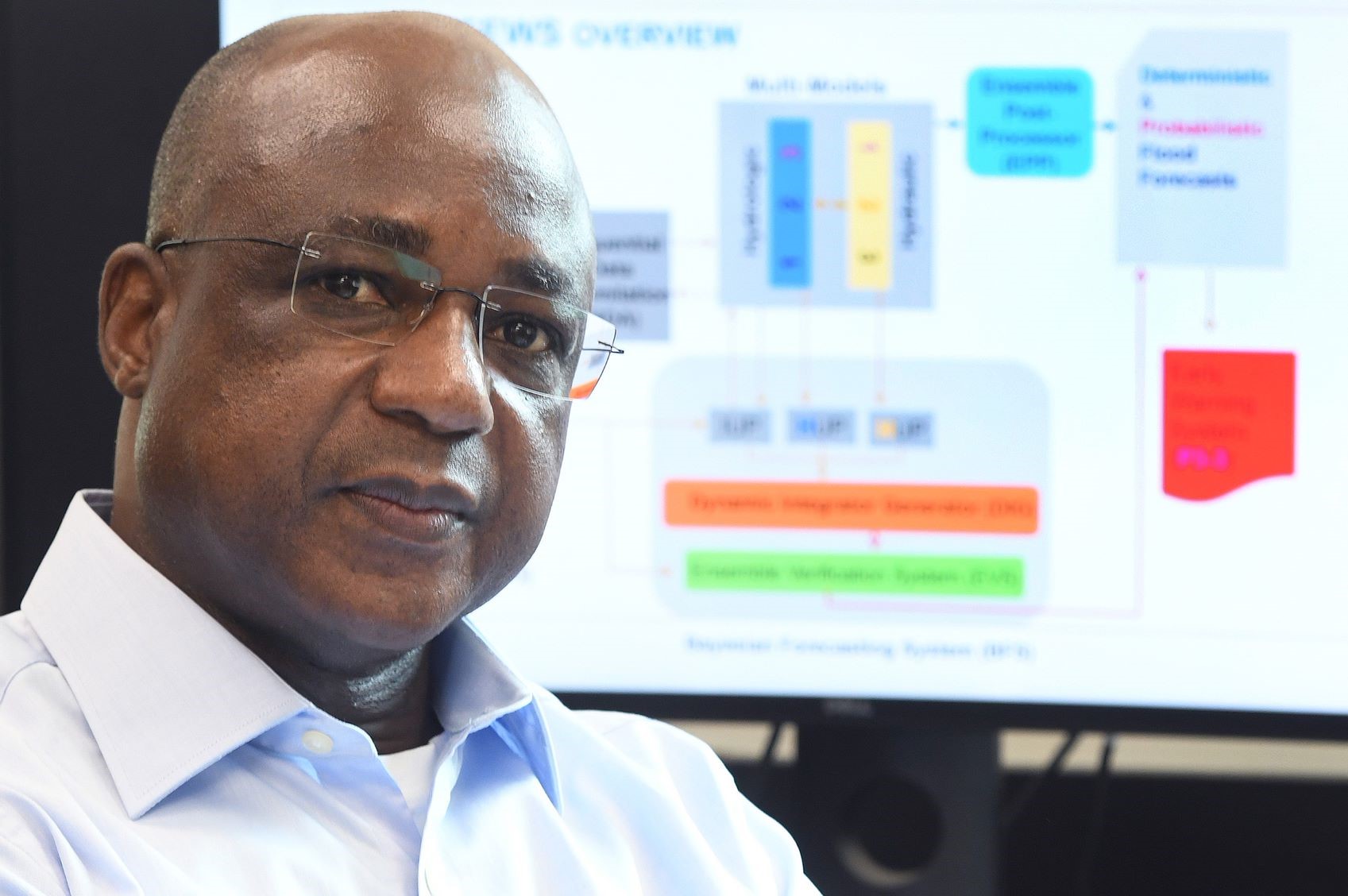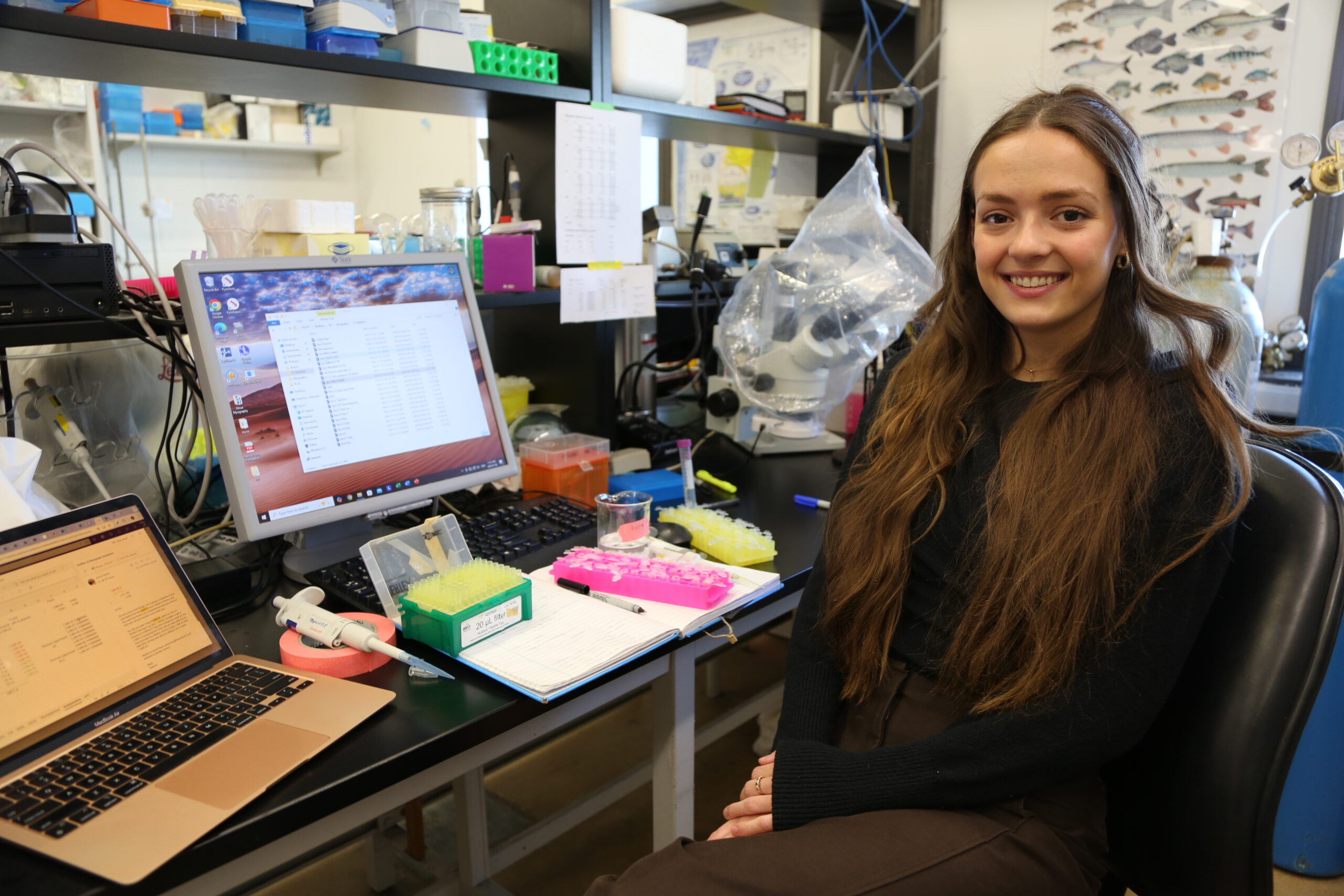Get up. Stand up. BEAT Lab exploring how music can support social justice

Can music move us to make a difference?
It’s a question Lauren Fink and her student team are ready to answer.
They have the musicians, venue and technology lined up. Now all they need is an audience.
“It’s going to be an epic project,” promises Lauren, an assistant professor in the Department of Psychology, Neuroscience & Behavior.
LIVELab is hosting The Innocents on April 2nd and 4th. The Innocents advocates for social justice through music performance art. Composed and performed by world-renowned percussionists Allen Otte and John Lane, their work explores wrongful imprisonment and exoneration.
 Lauren and her students will study audiences during an hour-long live performance by Allen and John, along with a screening of an award-winning feature-length documentary about their U.S. tour. The documentary features Anna Vasquez who was wrongly convicted in a trial corrupted by homophobia and spent 13 years in prison before being exonerated.
Lauren and her students will study audiences during an hour-long live performance by Allen and John, along with a screening of an award-winning feature-length documentary about their U.S. tour. The documentary features Anna Vasquez who was wrongly convicted in a trial corrupted by homophobia and spent 13 years in prison before being exonerated.
Audience members who choose to participate in the research study will have their eye movements and heart rates tracked and complete a survey. All of that data will help Lauren and her team pinpoint what moves people during a concert. When does audience attention wax and wane? How do physiological changes relate to self-reported emotions and opinions?
“Advocacy through music has the potential to shape public opinions,” says Lauren. “Yet advocacy and the altruism it promotes are understudied areas in social psychology, music cognition and communication studies. Our hope is that our findings can be applied in creative and cultural industries and used to design musical experiences that maximize audience engagement.”
It’s an ambitious project and one that ties together Lauren’s lifelong passion for music, neuroscience and social justice. She studied music and performed as an orchestral percussionist at the University of Cincinnati College – Conservatory of Music. Allen was one of Lauren’s professors and mentors. “Working with Allen has profoundly shaped my thinking for the better part of a decade now,” says Lauren.
After completing a masters at the Centre for Music & Science at Cambridge University, Lauren earned a PhD in Neuroscience at the University of California, Davis, followed by postdoctoral research at the Max Planck Institute for Empirical Aesthetics. That’s where Lauren organized two conferences and a special issue in a research journal devoted to eye-tracking studies of music.
While you can take the scientist out of the orchestra, you can’t take the orchestra out of the scientist. This helps explain not only the drum kit in Lauren’s BEAT Lab in the Psychology Building but also her collaborative approach to conducting her latest and largest ever research study.
Every student has a key part to play in the project. “Like an orchestra, we’re entirely dependent on each other. The collective success of our study rests on our individual contributions.”
PhD student Shreshth Saxena will investigate the audience’s gaze behavior using eye-tracking glasses. He’s also developed deep learning-based webcam eye-tracking methods that’ll measure the gaze of participants watching an online livestream of the performance and documentary.
Doctoral student Maya Flannery will use open-source watches and web cameras to track the audience’s heart rates. Analyzing cardiac activity will allow the team to determine whether certain elements of the performance or documentary lead to more variable responses and whether that variability fluctuates the same way across audience members.
Graduate student Joshua Schlichting will use surveys to go beyond physiological measures and investigate the social psychology of both the concert and documentary. Responses will yield insights into audience members’ subjective experiences and record their follow-up engagement around the issue of wrongful incarceration.
Combining the research by Shreshth, Maya and Joshua will take the project to a whole other level, says Lauren. “Exploring the mapping between physiological responses, self-reported experience and observable behavior will allow our team to integrate all of their individual interests and specialties to answer the larger question about how art and music move audiences.”
The project will also deliver one other key benefit, says Lauren. “Getting students to see themselves as scientists is a long process. Involving all my graduate students in a project where we mutually depend on one another, where we all see, respect and support each other as scientists with important roles to fill, will help them build their identities as valuable, contributing members of both the scientific community and society more broadly.”
 ORDER TICKETS TODAY
ORDER TICKETS TODAY
Tickets for The Innocents at the LIVELab April 2nd and 4th are now on sale. The event is supported by NSERC Discovery, incite Foundation for the Arts, McMaster University Alumni, TD Insurance, Marsales Real Estate and Long & McQuade Musical Instruments.
Faculty, Graduate students, PhD student, Research excellenceRelated News
News Listing

Research group receives federal climate change funding to help plan and design more resilient electricity systems
Faculty, Research excellence
2 days ago

Faculty of Science launches five research-focused credit courses for first and second-year students
Research excellence, Student experience, Students
1 week ago

Grad student’s debut oral presentation is an award-winner
Awards, Graduate students
January 13, 2025
